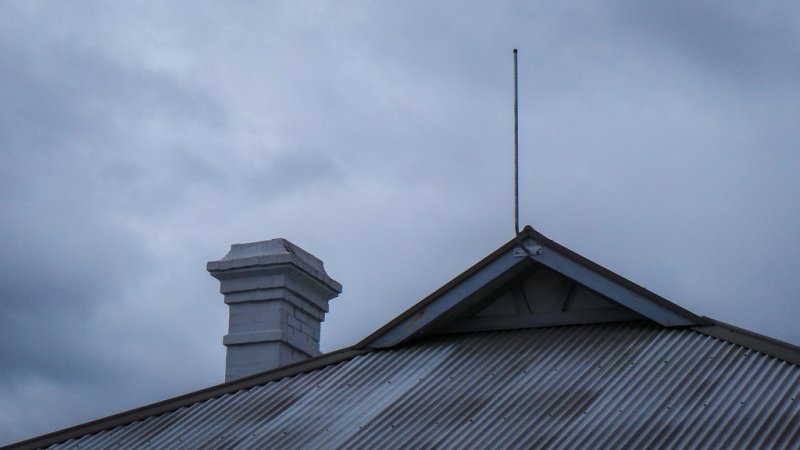I was in my Electricity class last year and we had just learned about how lightning rods work and how important it is to that if a building has one that we need to make sure that it is connected to the buildings grounding systems. So the electricity can get to the ground without running through the rest of the building, causing the building to catch on fire. We then spent the next two classes going over other Lightning Protection Systems and learning more about all of the legal methods to efficient ground a building for the test that we would be having over grounding. A way that we can connect a lightning rod to the buildings grounding systems is by connecting a bare copper wire to the rod then run it to the grounding system. One of the most effective grounding systems is connecting it right to the buildings foundation which is filled with rebar which is very conductive. This is in contact with the ground on all sides so there is plenty of area that the grounding system is connected to. About two classes after we had the test one of the other kids in my class asked the question why do we not just invite a u-shaped lightning rod that when it is struck by lightning it send it back into the sky.
The reason that this is a stupid question is because everything that we know about electricity says that it likes to take the shortest path to ground so in this case it would not go back into the sky it would ark to something else and go to ground that way. So what that means it would ark to the closest conductive material, which could cause more damage than if we just kept the system that has worked for over 200 years. I do not think that anybody else was thinking of this and we ultimately wasted 20 minutes trying to explain why this would not work. We had to explain to him that electricity would just find another way to the ground and would not travel back into the sky. Another reason that this was a stupid question is that it would violate the National Electric Code which you have to follow when you are wiring a device in any building in the United States. The National Electric Code says that if you have a Lightning Protection System it must be connected to all of the houses grounding systems. A lightning rod fall into the category of a Lightning Protection System so that means it has to be connected to all grounding systems. You would think after we explained all of that that he would have stopped asking questions about it but he did not.
The next class he came into the class with a drawing of what he called the U-shaped lightning rod. We then had to have that same conversation with him again about why it would not work, even if he had made it so it never came into contact with the house by mounting it using a rubber mount. The reason that he thought that it might work is because he figured that we were saying that it would not work because it would just travel through the house. He thought that by making it mounted on a rubber pad that it would then be able to make it shoot back up into the sky fixing what he thought was the problem. We had to explain that it was more than a design flaw but a but could not be physically possible because it goes against every single thing that we know about how electricity acts in nature but we still do not know a lot about it.
This question that this student asked provided really nothing to help further the discussion in class. I feel like if this student did not ask the question we might not have gone into further discussion about Lightning Protection Systems. This could have resulted in us not have as clear of an understanding about LPS. With that being said, I feel like if he did not come into the next class with the plan that he made to create this we could have saved time if we did not have to explain to him that it was more than just a design flaw that the science behind it would not work. So I think that this question both helped us but it also made us lose valuable class time when he asked the second stupid question. I think that even if you think that a question is so stupid that it can not further a discussion it might just be able to. I think that you should always ask a question even if you think that It might be the stupid question that you have ever heard.
Photo by Theen … on Foter.com / CC BY-NC-SA













2 Comments
I really connect with your blog post J.T. because I was there, you always described it enough and in detail to make it feel like I was there even if I wasn’t. I also agree with you that this was a stupid question because of how dangerous it would be because of how it is being grounded.
This is a very well written post and I do agree with you that that was a very stupid question and after explaining it over and over again he would get it and understand. This connects to me in many ways because I see and hear it all the time about people asking the same question over and over again that was already answered and it starts to be annoying and stupid so I agree. You wrote everything so it was easy to follow and understand and I think it was overall a great and interesting post.